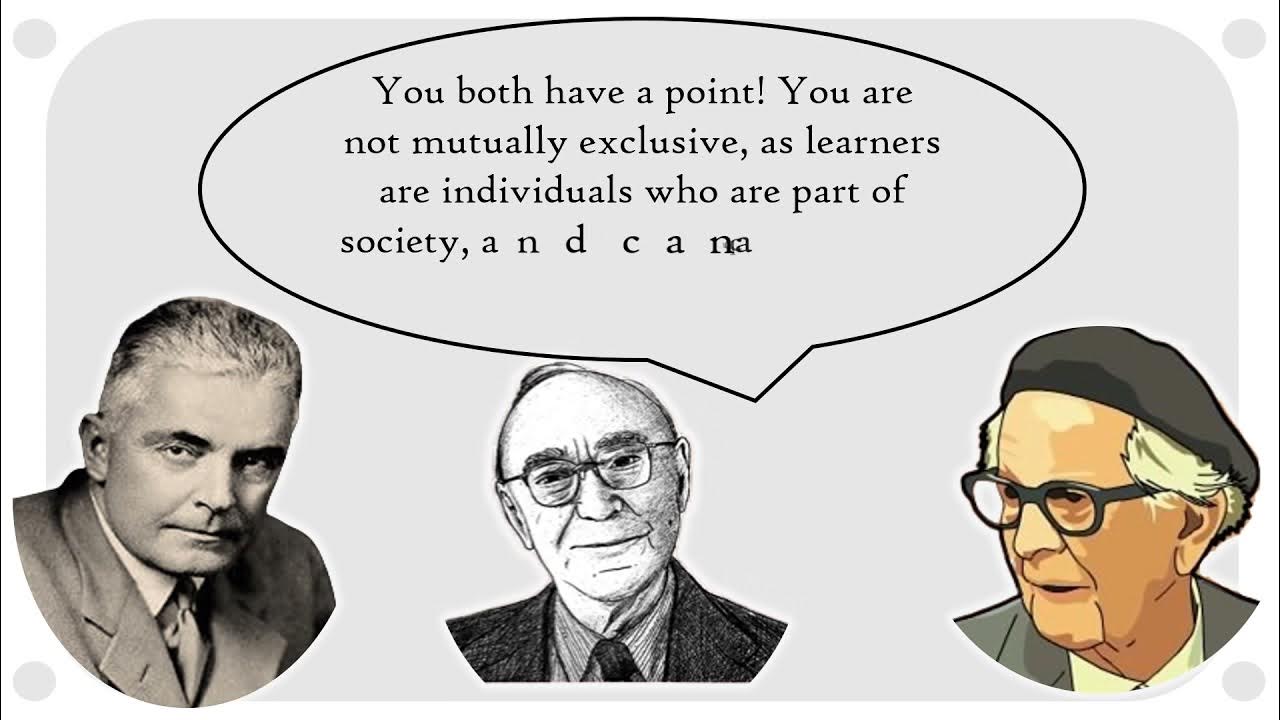MOOC EDSCI1x | Video 1: The Science of Learning and Effective Teaching Strategies
Summary
TLDRThis script explores how the science of learning can inform effective teaching practices. It emphasizes the importance of cognitive engagement, where students create lasting memories through active thinking and the connection of new knowledge to prior learning. The script highlights that struggle and confusion are key to deep learning, and that feedback is most valuable when students use it to improve. Furthermore, it stresses the significance of a growth mindset, where effort must be both focused and productive for success. The overall message is to design learning experiences that challenge and support students, fostering both enjoyment and growth.
Takeaways
- 😀 Students remember what they've been thinking about. 'Memory is the residue of thought.' - Daniel Willingham.
- 😀 Learning should be challenging, as struggle and confusion are important for making lasting memories.
- 😀 The more students cognitively process material and spread out their learning over time, the more likely they are to retain and use it later.
- 😀 To create lasting memories, new information should be linked to students' prior knowledge.
- 😀 Scaffolding and emotional support are critical in helping students overcome challenges and succeed.
- 😀 A growth mindset, where students believe they can improve through effort, is essential for their success.
- 😀 Hard work alone is not enough; the quality of the effort counts, and it must be effective in moving learning forward.
- 😀 Feedback is crucial for student growth, but only if students act on it effectively.
- 😀 Much of the feedback provided in schools is not effective in helping students close the gap between where they are and where they need to be.
- 😀 The only thing that matters about feedback is what the students do with it—action is key for improving learning.
Q & A
How does the science of learning influence teaching strategies?
-The science of learning suggests that teaching strategies should be based on how memory and cognitive processing work. Teachers can enhance learning by promoting active thinking, spacing out lessons over time, and ensuring students engage meaningfully with content to create lasting memories.
What is the relationship between working memory and long-term memory in learning?
-The relationship is crucial for retention. Working memory holds information temporarily, while long-term memory stores it more permanently. By engaging students to think critically and repeatedly about material, they can transfer information from working memory into long-term memory, ensuring it is retained.
What role does 'struggle' play in the learning process?
-Struggle is an essential component of deep learning. While it may seem counterintuitive, challenges and even confusion can help reinforce memory and understanding. It prompts students to think harder and work through problems, which leads to more durable learning outcomes.
Why is feedback important in the learning process?
-Feedback helps students close the gap between their current understanding and the desired learning outcomes. It guides students toward improving their knowledge and skills, but only if they actively engage with and use the feedback to adjust their learning strategies.
What is meant by 'memory is the residue of thought'?
-This phrase, coined by cognitive scientist Daniel Willingham, means that memory is shaped by what we think about the most. The more students focus on and actively process information, the more likely it is to be retained and later retrieved.
How can teachers encourage effective student effort?
-Teachers can encourage effective effort by providing opportunities for meaningful struggle and ensuring that students understand the quality of their effort matters more than just the quantity. Scaffolding, guidance, and emotional support help students make their hard work more effective.
Why shouldn't learning be too easy for students?
-Learning shouldn't be too easy because it leads to shallow understanding. For deeper learning, students need to be challenged and experience moments of struggle. These challenges help build connections in the brain and ensure that the material is processed meaningfully.
What is the importance of prior knowledge in new learning?
-Prior knowledge is critical for new learning because it provides a foundation for connecting new information. By linking new concepts to what students already know, they can better understand, retain, and apply what they are learning.
What are some key principles for effective feedback?
-Effective feedback should be clear, actionable, and timely. It should focus on specific areas for improvement and guide students on how to adjust their approach. Importantly, the feedback is only useful if students actively use it to improve their learning.
How can teachers help students develop a growth mindset?
-Teachers can help foster a growth mindset by emphasizing the value of effort and persistence in learning. Encouraging students to believe they can improve with hard work, providing constructive feedback, and celebrating progress can help them adopt this mindset.
Outlines

此内容仅限付费用户访问。 请升级后访问。
立即升级Mindmap

此内容仅限付费用户访问。 请升级后访问。
立即升级Keywords

此内容仅限付费用户访问。 请升级后访问。
立即升级Highlights

此内容仅限付费用户访问。 请升级后访问。
立即升级Transcripts

此内容仅限付费用户访问。 请升级后访问。
立即升级浏览更多相关视频

Educational Psychology - Explained for Beginners (In 3 Minutes)

Ini Alasan Pentingnya Proses Penilaian Menjelang Ujian Sekolah | Tips untuk Guru

Is Teaching an Art or a Science?.wmv

Pembelajaran Berdiferensiasi Konten

THEORIES OF LEARNING: BEHAVIORISM, COGNITIVISM, & CONSTRUCTIVISM

Cara Belajar Efektif Kepribadian Sanguinis, Melankolis, Korelis, Plegmatis
5.0 / 5 (0 votes)
